- Home
- Deborah Smith
The Stone Flower Garden Page 2
The Stone Flower Garden Read online
Page 2
“Why, pretty good, thanks.”
“Annie, let’s go.” The hard-looking man scraped a comb through his dark hair and rubbed his face with a towel he pulled from the truck’s cracked vinyl dash. He ignored me and went instead to Carl McCarl, my grandmother’s handyman. Carl McCarl shuffled like an old, bald bear as he mopped marble sidewalks and washed down buildings. He was in a bad mood. Grandmother had ordered him to go up on the main road when he finished there, and tear Preacher Al’s signs down off the pine tree again.
Preacher Al had been a stonecutter in the old days, but he went crazy at some point, forcing Great-Grandmother Esta to throw him out of town. He only preached through his pine tree pulpit, and everybody ignored him. Swan said he was a sad old man, and her mercy toward him always amazed me. Carl McCarl went up on the road regularly and took down his lurid signs. Swan would never explain their meaning to me.
“Excuse me,” the boy’s father said to Carl McCarl in a deep, workingman’s drawl, the voice of cornfields and textile mills, long-haul truck routes and late-night roadhouses. “My name’s Jasper Wade. I’m here to see Tom Alberts. Said to look for him at the Hardigree showroom here in town. Is this it?”
My ears pricked up. Tom Alberts was my grandmother’s business manager, handling the grubby details of firing and hiring workers at the quarry and the showroom. Hardigree Marble employed over 300 people. A good third of Burnt Stand’s workforce.
Carl McCarl turned slowly and stared at Jasper Wade for a long time. Jasper Wade scowled and flexed his massive forearms. “You got a problem with me, Mister?”
“Go round back. Around that corner, yonder. Down the alley. Ring the doorbell at the office sign. And don’t worry about that there truck. I’ll get you a mechanic to look at it.”
Jasper Wade’s face loosened with surprise. His expression said his whole life had been hard work and back doors, and any kindness was unexpected. “Thank you kindly.” He motioned for his wife to come along. I watched them walk down the burning sidewalks and disappear down a marble alley at the end of the block. Carl McCarl watched him until he disappeared. I had never seen the old man so interested in just another stonecutter, or in anyone, for that matter. He wiped his forehead with a hand that trembled, then shuffled inside the showroom.
I shrugged off his strange behavior as I returned my attention to the boy, pondering how to test him. Greetings, I said to people, instead of Hello. I had read the salutation in a Victorian book of manners, and it clung to me like the scent of a comforting nosegay, a test to find the other lonely souls in the world. This happened because Swan kept me so isolated and spoke to me as if I were a small, pink adult. And so I had become a caricature, like a bad reproduction of a classic marble vase. A faux child. No one ever responded in like to my salutations. My whimsies were far too ponderous. My heart pounded. “Greetings,” I said loudly. I waited for him to say something stupid.
After a moment spent chewing a thought, the boy nodded. “Greetings,” he answered seriously, the first boy who ever had.
I smiled in disbelief. “My name’s Darl Union. What’s yours?”
“Eli Wade.”
“Is that your sister?”
“Yeah.” His little sister burrowed deeper into his stomach, clutching his t-shirt in her small fists and hiding her face.
I looked closer at her. “Can she breathe like that?”
He shrugged. “Aw, she’s a trout. She’s grown herself some gills.”
This was the funniest thing I’d ever heard, and now I fully admired Eli Wade’s way with words. I opened my mouth to say so, but from the corner of my eye I saw trouble coming. The children in the park included several older boys, all white except for Leon Forrest, the son of a tobacco farmer. Leon lounged nearby, skinny and dark as night, scowling and grimy in old jeans and a t-shirt. He was waiting for his daddy to come out of the feed-and-seed store. He sneaked peeks at Karen every time he saw her in public. He had a crush on her. She ignored him.
My stomach clenched as a gang of boys left the park and bounded our way. “Darl, Darl, you come over here with me!” Karen hissed. I didn’t budge. Eli’s shoulders tightened and his head came up. He pressed his glasses high against the bridge of his nose and scoured the other boys with a look. In return, they offered some creative spitting and sneering. Stonecutters’ sons. Tough as rock.
“What the heck kind of truck is this?” one said. The others joined in.
“I ain’t never seen nothing so sorry.”
“You all live in that thing?”
Eli said nothing. As if expecting the worst, he pried his little sister from his shirtfront, picked her up, then opened the truck’s passenger door and set her on the faded vinyl seat. She whimpered, gave the scene outside one quick, terrified look, then scooted down, out of sight. I heard her sobs. When Eli faced the gang again they closed in a little. One of the more swaggering types hooted and shot out a hand. He prodded Eli’s shoulder. “Hey. Hey. What’s wrong with that girl—is she some kind of retard?”
Eli punched the boy as quickly as a black snake snatching a mouse. The boy tumbled backwards into the others. Suddenly everyone was yelling. Eli stood there with his feet apart in dirty tennis shoes, his fists drawn up like a boxer’s, his whole attitude quiet and deadly. Heat fogged his glasses. “Get him,” a boy yelled, and they all stepped forward. Fists began swinging. One of them slammed Eli in the mouth, and he went down. The others piled atop him.
My life as a statue was over.
I leapt in a pink heap atop the downed boys, clawing and slapping as I pushed my way to Eli. I heard Karen squealing and looked up just enough to catch her bounding forward in my defense. One of the boys shoved her, but suddenly Leon Forrest had that boy by the collar of his shirt, shaking him. When the rest of the boys realized two girls and tough black Leon Forrest were in the fight—and not just any two girls—they backed off as if poisoned. Eli Wade got to his feet and wavered in place, blood streaming down his chin. I was sprawled on the pavement.
The whole gang stared at me, the color draining from their faces. The pink rose appliqué had been half torn from my skirt, my pink hair ribbons were akimbo and I was in a furious pink froth, with my skirt halfway up my waist, revealing pink panties. I glared from them to the row of fingernail scrapes on my arm oozing blood. “S-s-sorry,” one boy said.
“Aw, shit,” another intoned.
“He’s mine,” I said. “You leave him alone or I’ll tell my grandmother to fire your daddies from the quarry.” I was devoid of mercy or nobility in the heat of the moment. I felt a hand under my armpit. Eli pulled me to my feet then stepped in front of me gallantly while I jerked my skirt down. He squinted behind his fogged glasses, but his fists were steady. “Git, assholes,” he said to the boys. They turned and ran.
My breath backed up into my skull, and I felt dizzy. When my eyes cleared, Eli was looking at me with a frown. I shook my head. “Don’t be afraid. I didn’t mean it about their daddies. All the stonecutters belong to us Hardigrees. Now those boys know you’re one of them.”
Blood dripped from his nose, and he wiped it furiously. “I don’t belong to nobody. Leave me be.” He climbed into the truck, hauled his wailing sister out and shut the door. “Shussh, Bell,” he soothed, as he sat down on the running board with her in his lap. “Nothing ain’t hurt but our pride.”
Karen snatched my arm and swung me around. “Look at you! Oh, Darl! We’re going to be in trouble.” One of her braids was mangled. Crisp, wiry brown hair tufted from the ruined plait like stuffing from a pillow. “You okay, Karen?” Leon Forrest asked, as he hovered nearby. “Your do’s comin’ undone.”
She whirled toward the tall dark farm boy as if he intended to stain her much paler brown skin. “You go on. Shoo. Go away.”
“As long as you ain’t hurt.”
“I’m f-fine,” she sputtered. “G
o on, boy. Thank you. Bye.”
He sighed as if he could live on that small gratitude, then headed down the sidewalk, his shoulders hunched. I gazed unhappily at Eli and his sister. She burrowed her head in his stomach and sobbed. He sat there stoically, ignoring me.
At that moment Karen’s grandmother, Matilda, drove up in her gold sedan and slid out of the big car in a quiet whoosh of fine fabric. Matilda was an imposing woman, tall, slender, and impeccably neat in a tailored blue dress, her thick chocolate hair molded into a short, fashionable hairdo, her skin light enough for freckles. Only degrees of skin tone separated her from Swan, in terms of their majestic effect on people. “What in the world?” she asked, and her hazel eyes flashed angrily at Eli. “Who are you, young man?”
He stood, prying his little sister away for a moment. He bobbed his head to her, a polite gesture few white children made to colored women. “Eli Wade, ma’am.”
She went very still, her hand rising, slowly, to her throat. “Wade,” she said softly. Like Carl McCarl, she seemed stunned.
“He didn’t do anything wrong,” I said quickly. “I’ll take the blame for him. He’s mine, Matilda. Please?” I smoothed my hand across my arm, swiping blood from my scratch. I had seen this in a movie. Blood rituals. Before Eli Wade could pull away I drew my finger through the blood beneath his nose, then dabbed it on my own cheek. Unaware of any other forces swirling around us, I met the slow, amazed heat of Eli’s stare. “My stonecutter.” I told him.
I had decided we were cut from the same rock.
The past is carved in stone. Never leave the pieces for someone to find. Swan Hardigree Samples had written that rule on a slip of paper when she was a girl and had never forgotten it. The warning ran through her mind now as she held a yellowed photograph at her desk in the dark luxury of her library at Marble Hall. Matilda pulled an armchair beside Swan’s desk and they bent their beautiful heads together over the photograph.
It had been taken on a rolling back street in Burnt Stand on a spring day in the mid-1930s. Swan’s aging mother, Esta, posed with jaunty elegance before the scaffolding and the piled stone block of yet another fine marble home she was building. Esta Houses, she called them. She was building her own town, building her own version of the past and grinding the rest to dust. A tight bow of dark material banded her ample hips in a long-waisted dress. Her bodice sagged a few inches too low, revealing a crevice of fine bosom below a neck with skin going as soft as pale crepe.
Around her, workmen posed awkwardly, their hats in their hands, obedience in their eyes. Behind her on a rough pedestal of tumbled stone, gazing out steadily at the camera, Swan herself stood in the glory of a nineteen-year-old’s future, lovely and reserved in a long slender skirt and high-buttoned white blouse, her eyes stern but still capable of warmth and humor. Her younger sister Clara lay on her side atop a low stone wall, dressed in schoolgirl cotton but lounging like a Southern Cleopatra, even to the sly expression on her face. Off to one side, away from the whites, Matilda stood much as Swan did, with steady decorum and quiet command, a heavy cameo closing her blouse at the throat. Strangers assumed she was a live-in colored companion, or a personal maid of some kind.
Behind and above them all, framed by the unfinished marble walls of the house, a tall, dark-haired white man stood with his long legs braced apart on scaffolding. He was dressed in worker’s clothes and had the muscular build of a stonecutter, but there was more pride than humility in his face. He’d hooked his thumbs in loose pockets over long thighs. He seemed to be standing easily atop the world. Their world.
His name had been Anthony Wade.
“What a handsome sight Anthony made that day,” Matilda said. “We could barely keep our eyes off him.”
“But he only had eyes for you.” Swan put the photograph back in a small marble-and-wood box with a lock on the lid. She flicked the dial and handed the box to Matilda. “I wish you hadn’t kept that.”
“It’s the only picture I have of him.” She paused, her throat working. “Thank you for helping me find his family.” They touched hands for a moment. Swan nodded to her, but grimly. “This family of Anthony’s came long after he left Burnt Stand,” Swan reminded her. “You owe them nothing.”
“I owe Anthony,” she said.
“If Clara hears about us bringing them here, you know there’ll be trouble.”
“She won’t hear. No one remembers Anthony but us—and old Carl. No one else will associate the Wade name with him.” She rose, and took the box. “I have to help Anthony’s son and his family, Swan. I have to try.”
Swan nodded wearily. She indulged Matilda, though she herself had long since given up on sentiment and kindness of the overt variety. She and Matilda had survived hard childhoods, small-minded dictates, men who came and went, and daughters who never understood and died young. She feared that bringing the Wades to Burnt Stand was a mistake she’d regret for the rest of her life.
“Send Darl in,” she told Matilda.
Matilda frowned. “She’s claimed Eli Wade as her personal project. She’ll defend him. I don’t know what to make of it. You should have seen them together. Like two little warriors.”
An amazing child, Swan thought. She steepled her chin on one hand, and shut her eyes. Darl was bright, smart, beautiful, loving. Her future could be ruined so easily. Like fine hard stone, she had to be chiseled just right. Swan would not make the same mistakes she’d made with Julia, Darl’s mother.
“I’ll let her have the boy for now.” Swan opened her eyes and looked at Matilda. “She’ll understand her place and his, soon enough.”
“Don’t we all?” Matilda said sadly, and left the room.
“Why, Darl, you favor your grandmother more every day,” an elderly woman had cooed to me one day as I stood in the Burnt Stand Soda Shop, waiting for Swan.
“No, I think she looks more like her Great-Aunt Clara,” an elderly companion insisted.
“Oh, don’t say that. Don’t put that curse on the child.”
“But Clara was beautiful!”
“She was as ugly as sin.”
I stood there listening in horrified confusion as they heatedly debated my mysterious great-aunt’s morals—and then I watched them snap shut like turtles when Swan arrived. And so I knew: Clara was so evil she could embarrass our family name in public, something a Hardigree must never do.
But now, I had done it, too.
I waited for Swan’s judgment on a teak bench in the hall outside her library. My feet tapped an uneven rhythm on the marble floor, and I shivered. Swan had recently outfitted the old mansion with air conditioning, and I missed the hum of ceiling fans and warm breezes. “Help,” I whispered to a fireplace portrait of my dead mother, Julia Samples Union. She smiled down at me in useless debutante beauty.
Everyone said she’d been a very sweet person, and very soft. I dreamed of her at night, and of my father, who had been nothing but a young Hardigree company stonecutter. I had never known either of them. I was just a baby when he killed himself and my mother by driving too fast on a mountain road just outside town. He didn’t mean to. Men never did, Swan said.
My great-grandmother, Esta, stared down at me from another wall. Her portrait was nearly life-sized, and had been painted in the late 1930s, not long before she died. Esta was only in her fifties then, and still conveyed curvaceous beauty and power. She gazed out at the world with just the slightest taunting lift to one brow. An ice-blue ball gown hugged her breasts and spread from her waist like a flower, and around her throat a tiny Hardigree pendant—marble with a diamond in the center—hung from a snarl of pearls and sapphires. Swan wore one just like it.
Beside her, a massive portrait of her husband, my great-grandfather A. A. Hardigree, portrayed him as a darkly handsome man with burning eyes. He had started the quarry and built the original town of Burnt Stand, then died when
a fire destroyed most of the town in the 1920s. I was afraid of him, and could only think of him being roasted. Nearby, my grandfather, Dr. Paltrow Samples, smiled blandly from a portrait encased in marble trim. He had come from a prominent Asheville family, and had died of a heart condition before I was born. Swan rarely spoke of him, just as she rarely spoke of my dead mother, or of Great-Aunt Clara, who lived in Chicago.
There was no portrait of Clara anywhere in our house. She was the unspoken monster who might get me if I didn’t learn to be a lady. Not that Swan told me that in so many words, but even as a child I knew it was a bad sign when someone’s name was never mentioned.
If I weren’t careful, I’d end up just as invisible.
The library’s massive oak doors clicked softly. I jumped up, clutching my hands behind my back as if shackled. Matilda stepped out. “You may go in,” she said gently. “It’s all right.” She patted me on the back. Matilda had a core of warmth that Swan lacked. I nodded and swallowed hard.
When I stepped into the library soft shards of light glimmered on a crystal chandelier. Swan rose from her desk. I shivered again, although my grandmother would never lay a hand on me, and rarely even raised her voice. She was fiercely protective of me, firmly instructive, extremely proud. I wanted to please her.
“You disobeyed my strictest rule about our behavior in public,” Swan said in her cultured drawl. I could only nod shamefully.
She moved across the room with the hipless grace of a Vogue model, dressed in a pale linen skirt, a white blouse and low-heeled white shoes. A single strand of pearls graced her throat, matching small pierced earrings. She wore a gold wristwatch, a diamond-encrusted wedding ring and her Hardigree pendant. Swan was only in her early fifties, still stunning, with shoulder-length brunette hair she had just begun to touch up with color. Her eyes were even bluer than mine, with arching brows.

 Legends
Legends Hold on Tight
Hold on Tight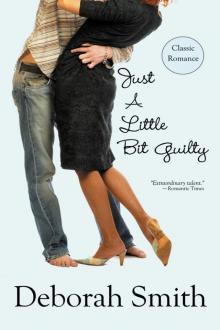 Just a Little Bit Guilty
Just a Little Bit Guilty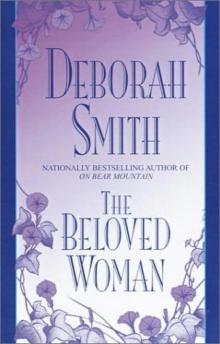 The Beloved Woman
The Beloved Woman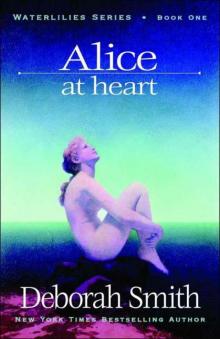 Alice At Heart
Alice At Heart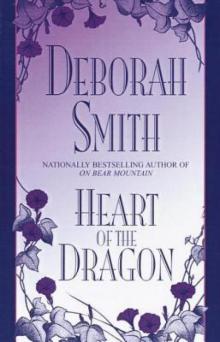 Heart of the Dragon
Heart of the Dragon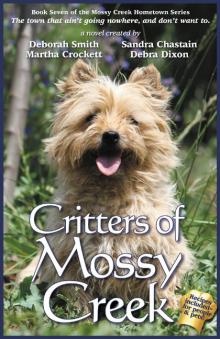 Critters of Mossy Creek
Critters of Mossy Creek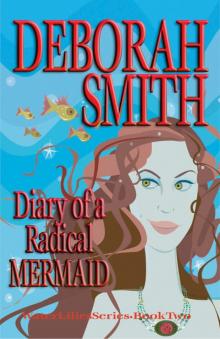 Diary of a Radical Mermaid
Diary of a Radical Mermaid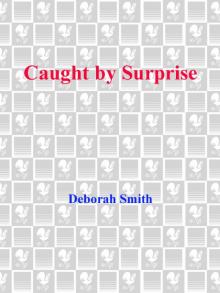 Caught by Surprise
Caught by Surprise Stranger in Camelot
Stranger in Camelot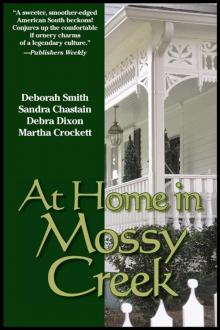 At Home in Mossy Creek
At Home in Mossy Creek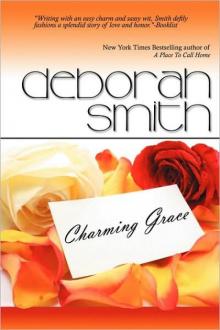 Charming Grace
Charming Grace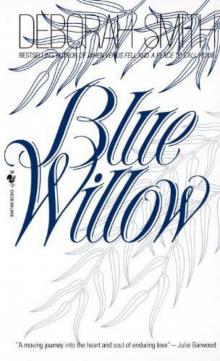 Blue Willow
Blue Willow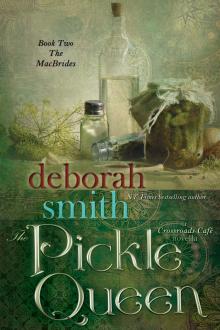 The Pickle Queen: A Crossroads Café Novella
The Pickle Queen: A Crossroads Café Novella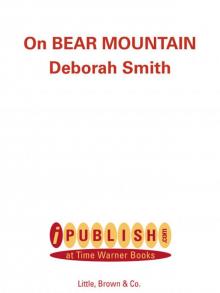 On Bear Mountain
On Bear Mountain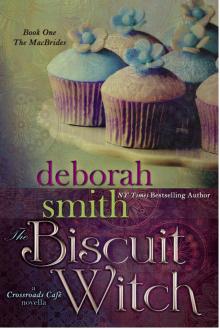 The Biscuit Witch
The Biscuit Witch Sara's Surprise
Sara's Surprise More Sweet Tea
More Sweet Tea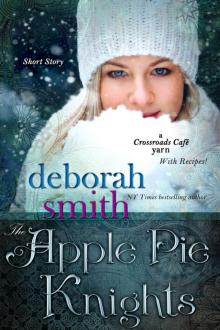 The Apple Pie Knights
The Apple Pie Knights The Silver Fox and the Red-Hot Dove
The Silver Fox and the Red-Hot Dove Sweet Hush
Sweet Hush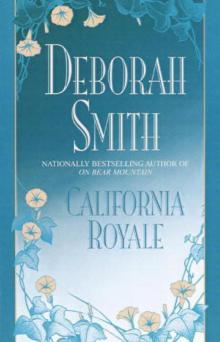 California Royale
California Royale Hot Touch
Hot Touch Miracle
Miracle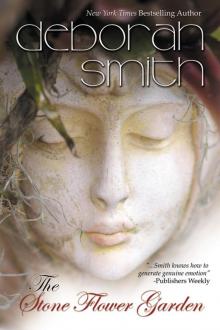 The Stone Flower Garden
The Stone Flower Garden A Place to Call Home
A Place to Call Home Silk and Stone
Silk and Stone Honey and Smoke
Honey and Smoke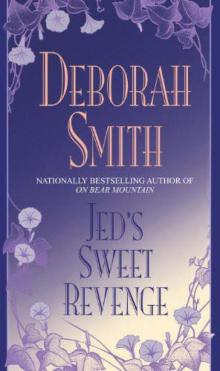 Jed's Sweet Revenge
Jed's Sweet Revenge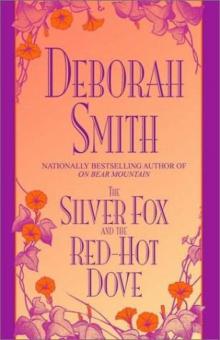 Silver Fox and Red Hot Dove
Silver Fox and Red Hot Dove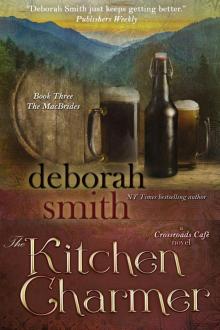 The Kitchen Charmer
The Kitchen Charmer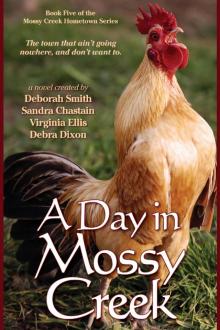 A Day in Mossy Creek
A Day in Mossy Creek Never Let Go
Never Let Go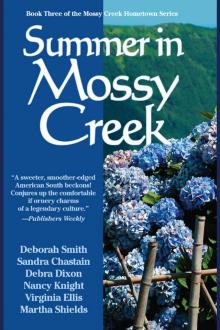 Summer in Mossy Creek
Summer in Mossy Creek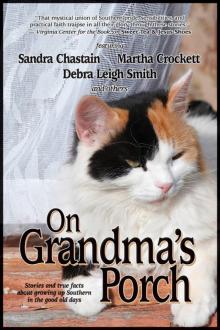 On Grandma's Porch
On Grandma's Porch The Crossroads Cafe
The Crossroads Cafe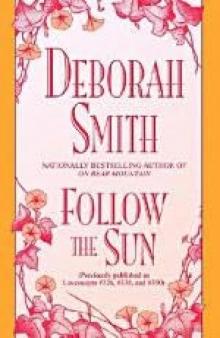 Follow the Sun
Follow the Sun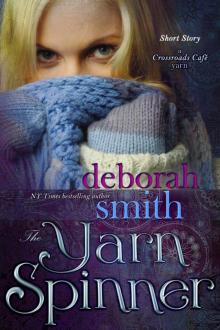 The Yarn Spinner
The Yarn Spinner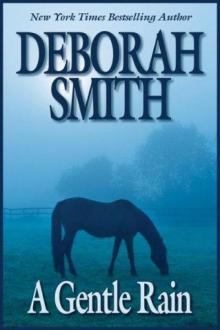 A Gentle Rain
A Gentle Rain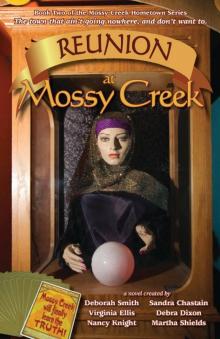 Reunion at Mossy Creek
Reunion at Mossy Creek